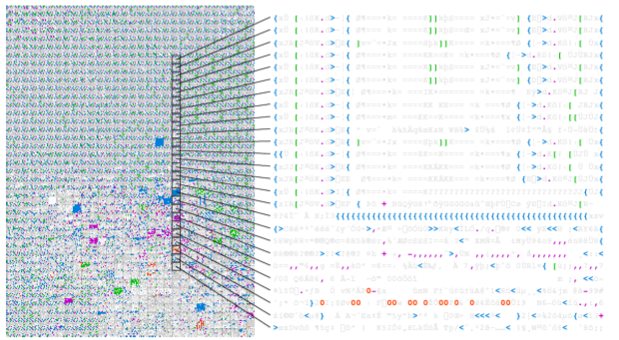Google claims it's been able to simulate 'self-replicating' digital life, but its 'primordial soup' needs a pinch of salt
Sure you did.

Google researchers claim that, in an experiment simulating what happens when you leave a bunch of code strings alone for millions of generations, they've observed the emergence of "self-replicators" from what began as non self-replicating code chunks. New Scientist rather implausibly claims this "could mirror—or at least shed light on—the emergence of actual biological life."
Hm. This is one of those studies where the experiment and findings definitely feel consequential, but at the same time need some heavy caveating. Google has not somehow simulated the emergence of life as it happened on Earth. What its researchers may have possibly done is suggest a new theory for how non-living molecules could come together to form living molecules, ie, how biological life ever began at all.
The news comes from a recently published paper titled "Computational Life: How Well-formed, Self-replicating Programs Emerge from Simple Interaction." The raw material for the experiments is tens of thousands of pieces of code, written in a programming language called—I'm not making this up—Brainfuck. The researchers call this an "esoteric language chosen for its simplicity" in only allowing two mathematical functions: +1 or -1. These chunks of code were randomly mixed, combined, and "left to execute code and overwrite themselves and neighbors based on their own instructions" over millions of generations.
The expected result was no result, that the code would all remain random with no particular trends. Instead, self-replicating programs emerged, which self-replicated themselves over multiple generations to swiftly hit the experiment's population cap.
That's not all: in the above scenario, new types of replicators often emerged, and in some cases out-performed and replaced the previous self-replicator.
Google's Ben Laurie, one of the study's authors, told New Scientist that what's special about this experiment is that it didn't have any parameters beyond the randomness: “It all fizzes around and then suddenly: boom, they’re all the same," he said of the self-replicators.
"I don’t think anything magic happened," says Laurie. "Physics occurred, and it just occurred a lot over a very long time, and it gave rise to some very complicated things."
The biggest gaming news, reviews and hardware deals
Keep up to date with the most important stories and the best deals, as picked by the PC Gamer team.
Laurie does go on to say that scaling up the experiment, in terms of adding further complexity to behaviours like predator/prey relationships and the timescale, is not going to happen with current levels of computing power: "It's going to require so much compute that we're not going to practically do it."
Dr. Richard Watson, an evolutionary scientist who specialises in the algorithmic underpinnings of life and societies, says this is all "very cool" but quickly fetches a pail of cold water.
"The complexity, as they measure it, goes up after the onset of the self-replicator. But it's not clear that it 'takes off' in an interesting way," says Watson. "Self-replication is important, but it would be a mistake to believe it’s a magic bullet from which everything else that's exciting about life follows automatically."
Others were more positive, however, with the distinguished computer scientist Professor Susan Stepney calling the experiments that produced self-replicators "a great achievement."
"This is definitely a great step towards understanding potential routes to the origin of life, here in a medium quite removed from the standard 'wetware' of biology," Stepney said.
It certainly feels like Google's researchers have discovered something of importance, but the extrapolations from that can be a little buckwild. It arguably doesn't help with the latter that the research team chose to use terms like "primordial soup", knowing what people would infer from that. As for whether this study will be a stepping stone towards working out how organic molecules ever formed in the first place… well, we may need to wait for a few more generations' worth of computing power, and even then.

Rich is a games journalist with 15 years' experience, beginning his career on Edge magazine before working for a wide range of outlets, including Ars Technica, Eurogamer, GamesRadar+, Gamespot, the Guardian, IGN, the New Statesman, Polygon, and Vice. He was the editor of Kotaku UK, the UK arm of Kotaku, for three years before joining PC Gamer. He is the author of a Brief History of Video Games, a full history of the medium, which the Midwest Book Review described as "[a] must-read for serious minded game historians and curious video game connoisseurs alike."

